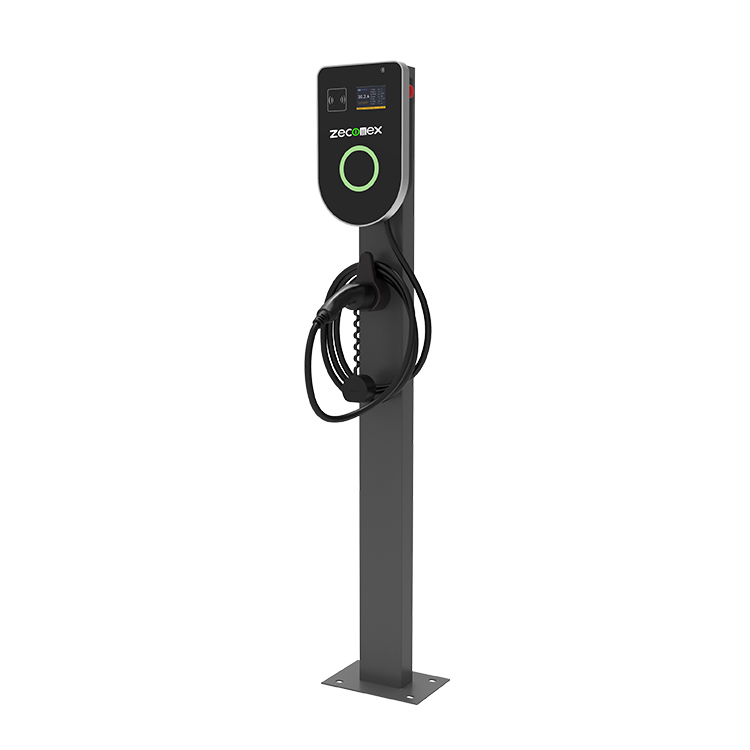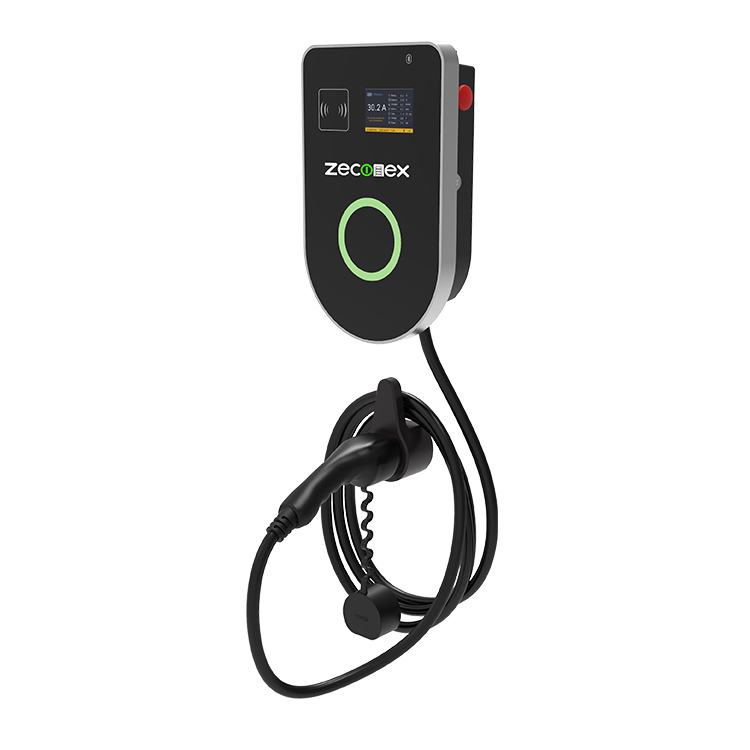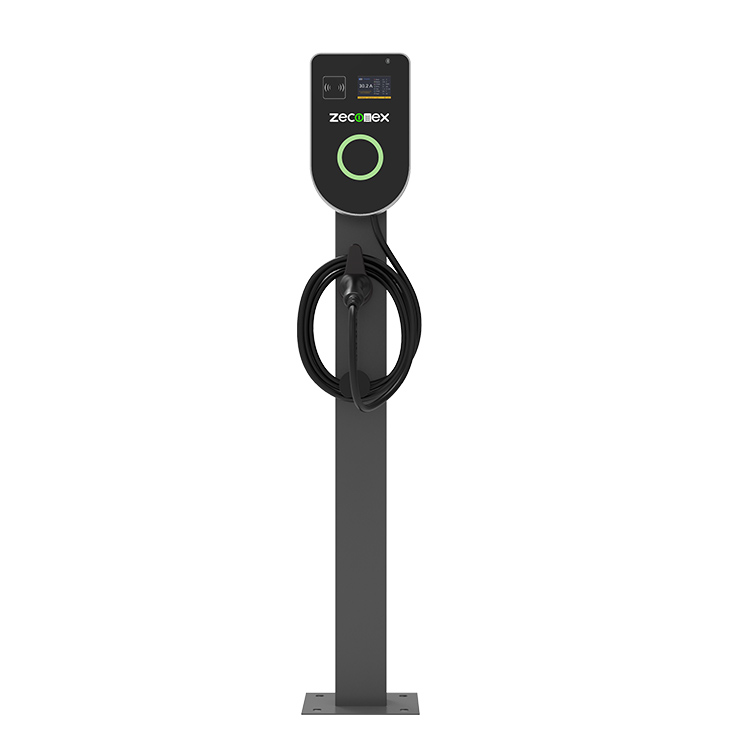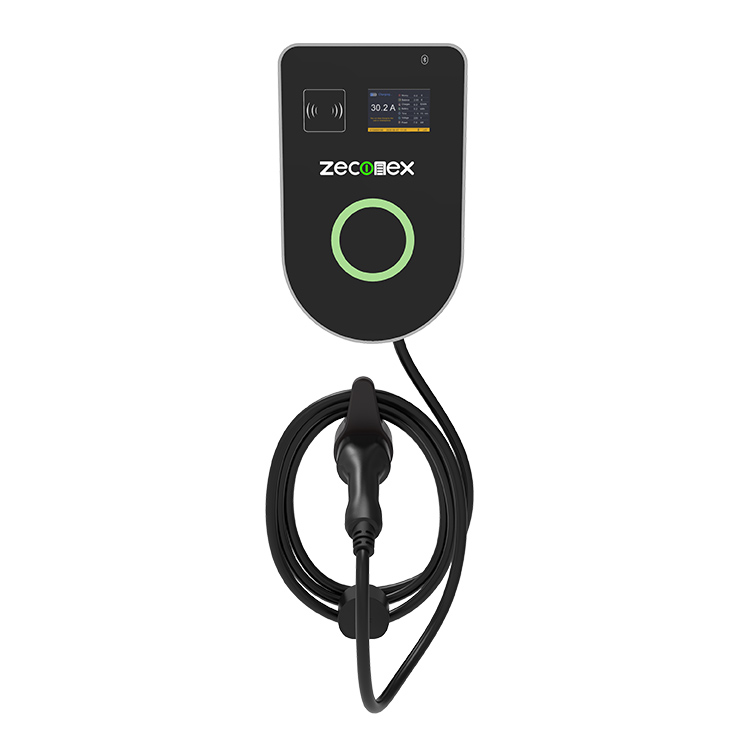In the dynamic world of transportation, the transition towards electric vehicles (EVs) is gaining momentum at an unprecedented pace. As environmental concerns intensify and consumers embrace eco-conscious choices, EVs are poised to revolutionize the automotive landscape. This surge in EV adoption is not merely a trend; it's a paradigm shift that is reshaping the way we move and interact with the world around us.
At the forefront of this transformation lies the crucial need for a robust and accessible EV charging infrastructure. While residential chargers cater to individual EV owners, commercial EV chargers play a pivotal role in empowering businesses to embrace the EV revolution and reap its multifaceted benefits.
This comprehensive guide delves into the world of commercial EV chargers, illuminating their advantages, exploring installation processes, and showcasing success stories from businesses that have harnessed the power of EV charging to propel their growth.
Understanding the Commercial EV Charging Landscape
Commercial EV Chargers! Powering Businesses into the Future
Commercial EV chargers are the cornerstone of a thriving EV ecosystem, providing the essential infrastructure that enables businesses to cater to the growing demand for EV charging services. These chargers are designed to meet the higher power requirements and extended charging needs of commercial settings, typically offering Level 2 or DC fast charging capabilities.
Level 2 Chargers! The Backbone of Commercial EV Charging
Level 2 chargers are the most common type of commercial EV charger, providing a charging speed of approximately 25-40 miles of range per hour. These chargers are ideal for workplaces, shopping centers, and other locations where EVs are parked for extended periods.
DC Fast Chargers! Supercharging the EV Charging Experience
DC fast chargers offer a significantly faster charging experience, delivering up to 100 miles of range in as little as 30 minutes. These chargers are particularly well-suited for locations where EVs need a quick boost, such as highway rest stops and urban centers.
Choosing the Right Commercial EV Charger! A Tailored Approach
Selecting the appropriate commercial EV charger requires careful consideration of number of ev parking spots, power availability,budget.
The number of chargers should align with the anticipated demand for EV charging at the location.Ensure the electrical system can accommodate the power requirements of the chosen chargers.Evaluate the upfront costs and ongoing maintenance expenses associated with different charger options.


Unveiling the Advantages of Commercial EV Chargers for Businesses
Investing in commercial EV chargers presents a multitude of benefits for businesses, encompassing financial gains, environmental stewardship, and a competitive edge.
Financial Rewards! Attracting and Retaining Customers
Commercial EV chargers can serve as a powerful magnet for EV-driving customers, increasing foot traffic, boosting sales, and fostering customer loyalty.
Employee Satisfaction and Talent Attraction
Providing EV charging facilities demonstrates a commitment to sustainability and employee well-being, enhancing employee satisfaction and attracting top talent.
Government Incentives and Tax Benefits
Many governments offer financial incentives and tax breaks to businesses that install commercial EV chargers, reducing the overall costs and accelerating the return on investment.
Environmental Responsibility! Reducing Carbon Footprint
Commercial EV chargers promote sustainable practices by reducing a business's carbon footprint and contributing to cleaner air quality.
Competitive Edge! Staying Ahead of the Curve
Embracing EV charging positions businesses as forward-thinking and environmentally conscious, giving them a competitive edge in a market increasingly driven by sustainability.
Navigating the Installation and Maintenance of Commercial EV Chargers
Demystifying the Installation Process
The installation of commercial EV chargers involves a well-structured process.
Site Assessment - A thorough assessment of the location's electrical capacity and infrastructure is conducted.
Electrical Work - Qualified electricians install the necessary wiring and electrical components to support the chargers.
Charger Setup - The chargers are mounted in designated locations and configured for optimal operation.
Addressing Installation Concerns
Common concerns related to commercial EV charger installation.
Costs - While upfront costs exist, long-term financial benefits and potential incentives can offset these expenses.
Permitting Requirements - Local regulations and permitting requirements should be carefully reviewed and adhered to.
Business Disruptions - Installation can be planned to minimize disruptions to business operations.
Ensuring Optimal Performance with Regular Maintenance
Regular maintenance is crucial for commercial EV chargers to ensure their longevity and optimal performance.
Routine Inspections - Visual inspections and electrical checks should be conducted periodically.
Preventive Maintenance - Regular maintenance schedules should be established to address potential issues proactively.
Technical Support - Prompt access to qualified technicians is essential for timely troubleshooting and repairs.


A Retail Giant Embraces EV Charging - Powering the Future of Shopping
In the heart of the bustling retail landscape, a global retail giant stands as a beacon of innovation, embracing the transformative power of electric vehicles (EVs) and commercial EV chargers. This retail giant, renowned for its commitment to sustainability and customer satisfaction, has recognized the growing demand for EV charging facilities and has taken a proactive approach to integrate these into its business strategy.
The Challenge - Addressing Evolving Customer Needs
As the number of EV-driving customers steadily increased, the retail giant faced a challenge: providing convenient and accessible EV charging infrastructure to meet the growing demand. Recognizing that EV charging was no longer a niche need but a rapidly evolving customer expectation, the company embarked on a mission to transform its parking lots into EV charging hubs.
The Solution - Implementing a Comprehensive EV Charging Strategy
With a clear vision in mind, the retail giant devised a comprehensive EV charging strategy that encompassed careful planning, strategic partnerships, and a customer-centric approach.
Site Assessment and Charger Selection
The company conducted a thorough assessment of its parking lots, evaluating factors such as power availability, traffic patterns, and customer demand. Based on this analysis, they selected the appropriate types and number of commercial EV chargers to meet the specific needs of each location.
Strategic Partnerships
Recognizing the expertise required for seamless EV charger installation and maintenance, the retail giant forged partnerships with leading EV charging providers. These partnerships ensured access to cutting-edge technology, experienced technicians, and reliable support services.
Customer-Centric Approach
The company placed customer convenience at the forefront of its strategy, ensuring that EV charging stations were strategically located, clearly marked, and easy to use. They also implemented mobile apps and payment systems to enhance the user experience.
The Impact - A Thriving Retail Ecosystem Powered by EVs
The implementation of commercial EV chargers has had a profound impact on the retail giant's business operations and customer base:
Enhanced Customer Satisfaction and Loyalty
By providing convenient EV charging facilities, the company has significantly enhanced customer satisfaction and loyalty. EV-driving customers appreciate the ease of charging their vehicles while shopping, fostering a positive brand perception.
Increased Foot Traffic and Sales
The availability of EV charging stations has attracted a new wave of EV-driving customers, leading to increased foot traffic and a boost in sales. This has revitalized the shopping experience, drawing in a more environmentally conscious and tech-savvy clientele.
Reduced Carbon Footprint and Environmental Stewardship
The transition to EV charging has significantly reduced the company's carbon footprint, aligning with its commitment to sustainability and environmental responsibility. This has not only enhanced its brand image but also contributed to a cleaner environment.
Competitive Edge and Market Leadership
By embracing EV charging, the retail giant has positioned itself as a leader in sustainable retail practices. This has given them a competitive edge in the market, attracting environmentally conscious consumers and solidifying their position as a forward-thinking innovator.
Conclusion - A Model for Sustainable Retail Success
The retail giant's success story serves as a compelling model for businesses across industries, demonstrating the transformative power of commercial EV chargers. By embracing EV charging, businesses can not only enhance customer satisfaction and boost sales but also contribute to a more sustainable future. As the world transitions towards a cleaner, electric-powered transportation landscape, businesses that embrace EV charging will be well-positioned to thrive and lead the way towards a more sustainable future.
